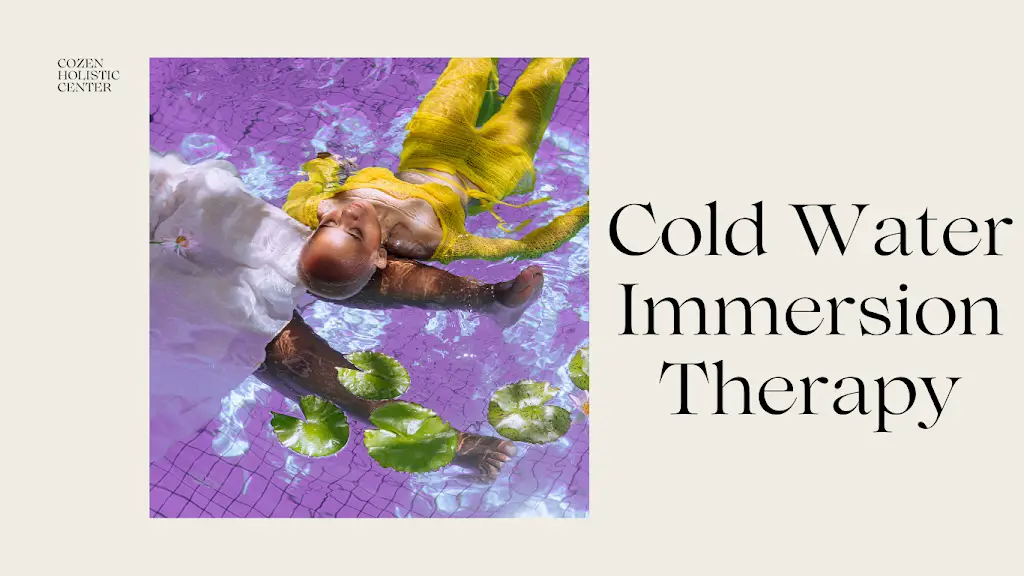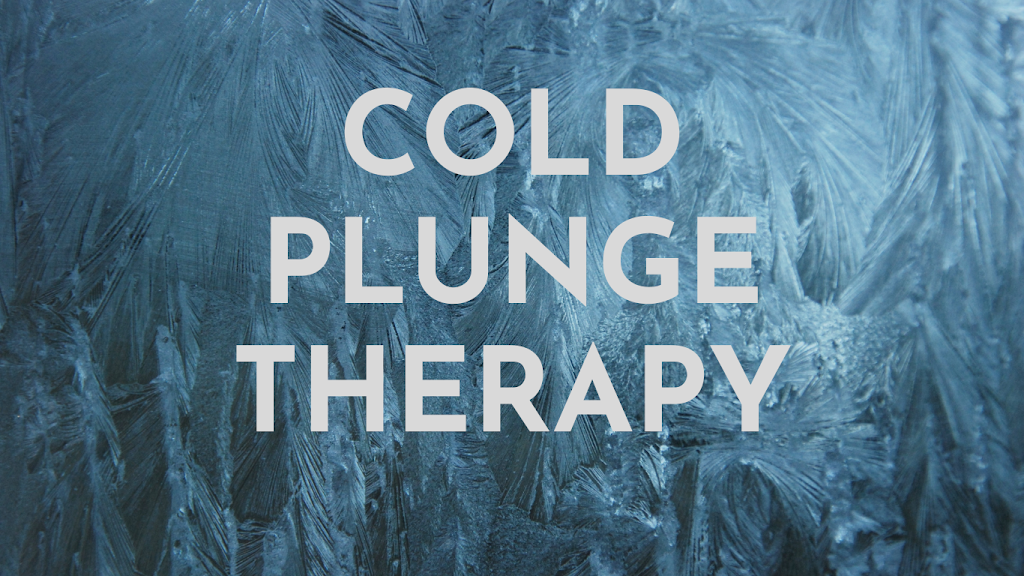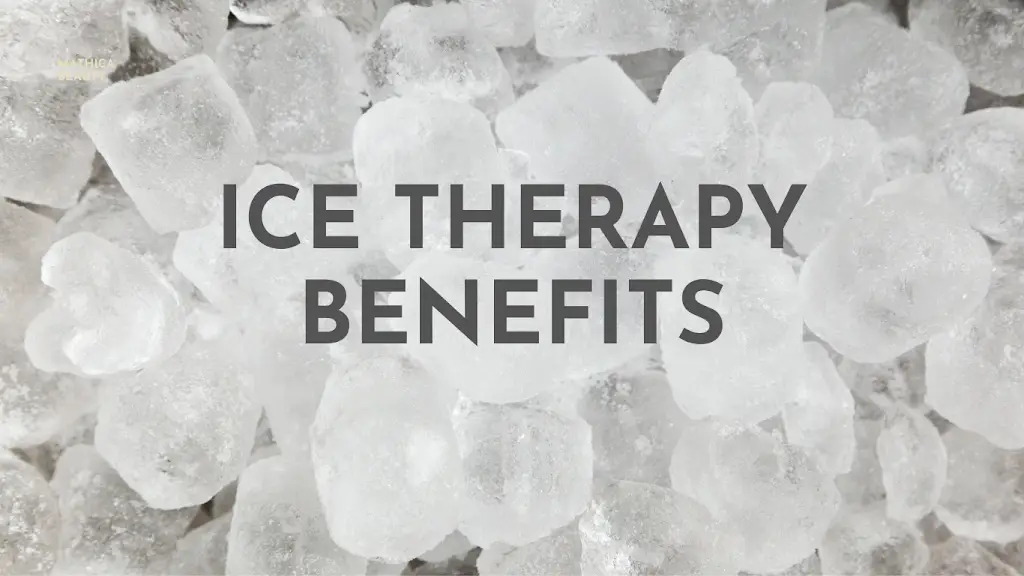Cold Water Immersion Therapy
Cold water immersion therapy, also known as cold water
therapy or cold plunge therapy, is a practice that involves immersing oneself
in cold water for a brief period of time. While the practice may seem
uncomfortable or even painful, cold water immersion therapy has been shown to
have a wide range of potential benefits for physical and mental health. In this
article, we will explore the benefits of cold water immersion therapy in
detail.
Reduced Inflammation
One of the most well-known benefits of cold water
immersion therapy is its ability to reduce inflammation. Cold temperatures can
cause blood vessels to constrict, which can help to reduce swelling and
inflammation in the body. This can be particularly beneficial for individuals
with conditions such as arthritis, muscle strains, and joint pain.
Improved Immune Function
Cold water immersion therapy has also been shown to have
benefits for immune function. Exposure to cold temperatures can stimulate the
production of white blood cells, which play a key role in fighting off
infections and diseases. Cold water immersion therapy may also help to increase
the production of antioxidants, which can help to protect the body from
oxidative stress and other forms of cellular damage.
Reduced Muscle Soreness
Cold water immersion therapy may also help to reduce
muscle soreness and fatigue. When muscles are exposed to cold temperatures, the
blood vessels constrict, which can help to reduce inflammation and promote
healing. This can be particularly beneficial for athletes or individuals who
engage in regular physical activity.
Improved Athletic Performance
In addition to reducing muscle soreness, cold water
immersion therapy may also help to improve athletic performance. Cold water
immersion therapy has been shown to increase blood flow and oxygen delivery to
the muscles, which can help to improve endurance and speed up recovery time.
Cold water immersion therapy may also help to improve cardiovascular function,
which can be beneficial for individuals who engage in high-intensity exercise.
Improved Skin Health
Cold water immersion therapy may also have benefits for
skin health. Exposure to cold water can help to tighten pores and reduce
inflammation, which can be beneficial for individuals with acne or other skin
conditions. Cold water immersion therapy may also help to improve circulation
to the skin, which can help to promote healthy skin cell growth and reduce the
appearance of fine lines and wrinkles.
Reduced Stress and Anxiety
Cold water immersion therapy may also have benefits for
mental health. Exposure to cold water can help to trigger the release of
endorphins, which are natural painkillers that can help to reduce stress and
promote feelings of relaxation and well-being. Cold water immersion therapy may
also help to reduce symptoms of anxiety and depression.
Improved Sleep Quality
Cold water immersion therapy may also help to improve
sleep quality. Exposure to cold water can help to stimulate the production of
melatonin, which is a hormone that regulates sleep-wake cycles. Cold water
immersion therapy may also help to reduce feelings of anxiety and promote
relaxation, which can be beneficial for individuals who struggle with insomnia
or other sleep disorders.
Reduced Risk of Cardiovascular Disease
Cold water immersion therapy may also help to reduce the
risk of cardiovascular disease. Exposure to cold temperatures can help to lower
blood pressure and improve circulation, which can be beneficial for individuals
with high blood pressure or other cardiovascular conditions. Cold water
immersion therapy may also help to improve heart function and reduce the risk
of heart disease.
Improved Digestive Health
Cold water immersion therapy may also have benefits for
digestive health. Exposure to cold temperatures can help to reduce inflammation
in the digestive tract, which can be beneficial for individuals with conditions
such as irritable bowel syndrome (IBS) and inflammatory bowel disease (IBD).
Cold water immersion therapy may also help to improve digestion and nutrient
absorption.
Increased Energy and Alertness
Finally, cold water immersion therapy may help to
increase energy and alertness. Exposure to cold water
Improved Lymphatic System Function
The lymphatic system is responsible for removing waste
and toxins from the body. Cold water immersion therapy may help to improve
lymphatic system function by increasing circulation and promoting the flow of
lymphatic fluid. This can be particularly beneficial for individuals with
conditions such as lymphedema.
Improved Mental Clarity and Focus
Cold water immersion therapy may also have benefits for
mental clarity and focus. Exposure to cold water can help to increase alertness
and stimulate the production of neurotransmitters such as dopamine and
norepinephrine, which can help to improve cognitive function.
Reduced Headaches and Migraines
Cold water immersion therapy may also help to reduce the
frequency and severity of headaches and migraines. Exposure to cold water can
help to constrict blood vessels in the head and neck, which can help to reduce
pain and inflammation.
Increased Fat Burning and Weight Loss
Cold water immersion therapy may also help to increase
fat burning and promote weight loss. Exposure to cold water can help to
activate brown fat, which is a type of fat that burns calories to produce heat.
Cold water immersion therapy may also help to increase metabolic rate and
reduce appetite, which can be beneficial for individuals who are trying to lose
weight.
Reduced Symptoms of Menopause
Cold water immersion therapy may also help to reduce
symptoms of menopause, such as hot flashes and night sweats. Exposure to cold
water can help to regulate body temperature and reduce the frequency and
intensity of hot flashes and other symptoms.
Improved Mood and Emotional Well-Being
Cold water immersion therapy may also have benefits for
mood and emotional well-being. Exposure to cold water can help to stimulate the
production of endorphins and other neurotransmitters that are associated with
positive mood and emotional well-being.
Reduced Symptoms of Fibromyalgia
Cold water immersion therapy may also help to reduce
symptoms of fibromyalgia, such as chronic pain and fatigue. Exposure to cold
water can help to reduce inflammation and improve circulation, which can be
beneficial for individuals with fibromyalgia.
Improved Joint Health
Cold water immersion therapy may also have benefits for
joint health. Exposure to cold water can help to reduce inflammation and
promote healing in the joints, which can be beneficial for individuals with
conditions such as osteoarthritis.
Reduced Symptoms of Depression
Cold water immersion therapy may also help to reduce
symptoms of depression. Exposure to cold water can help to stimulate the
production of neurotransmitters such as serotonin and dopamine, which are
associated with positive mood and emotional well-being.
Increased Resilience to Stress
Finally, cold water immersion therapy may help to
increase resilience to stress. Exposure to cold water can help to activate the
body’s stress response, which can help to improve the body’s ability to cope
with stress and other forms of adversity.
In conclusion, cold water immersion therapy is a practice
that has been shown to have a wide range of potential benefits for physical and
mental health. From reducing inflammation and improving immune function to
promoting athletic performance and improving sleep quality, cold water
immersion therapy is a simple and effective way to support overall health and
well-being. If you are interested in trying cold water immersion therapy, it is
important to start slowly and gradually increase the duration and intensity of
your exposure over time. As always, be sure to consult with your healthcare
provider before starting any new wellness practice.





